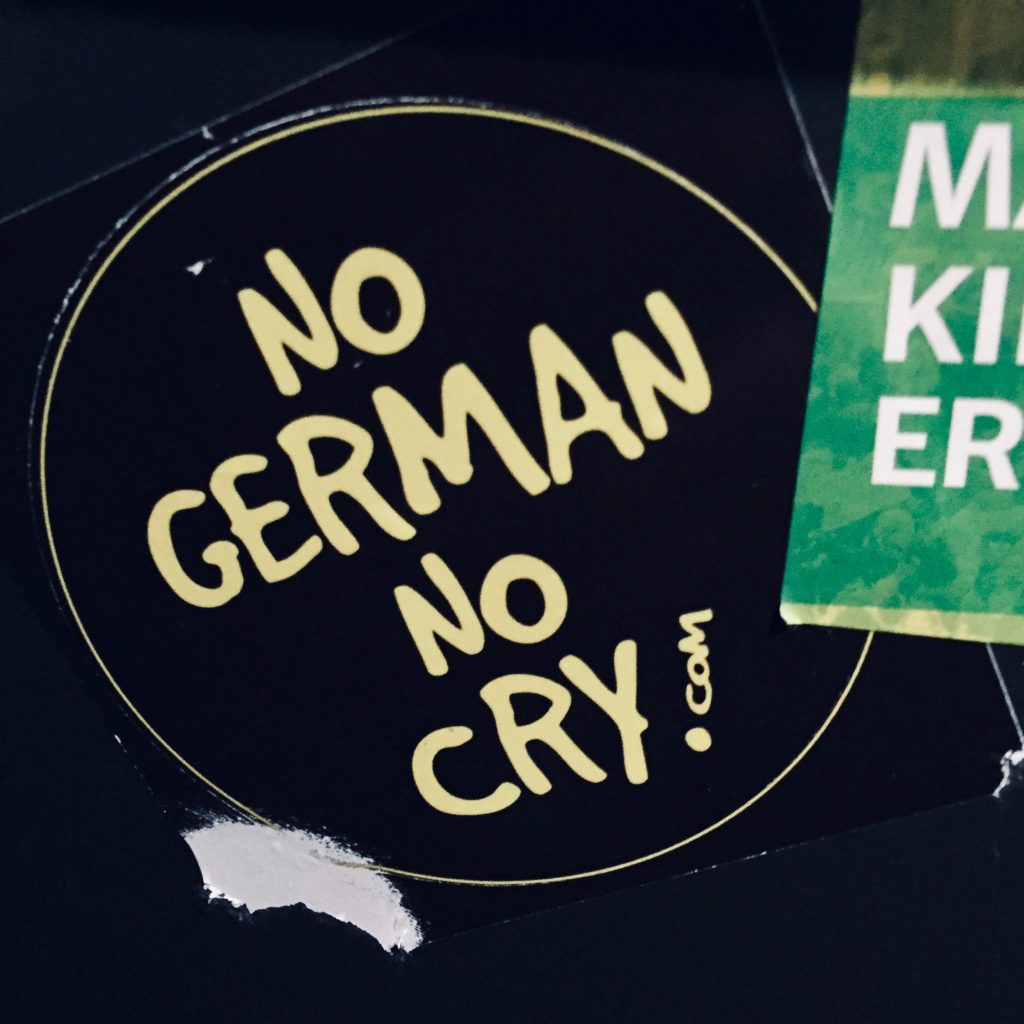We always like to believe that we are one single person. One individual with one personality only. We think with one brain, we survive with one beating heart and we speak with one tongue. People with more than one identity have a bird. Or not all cups in the cupboard. But it is us who are mistaken and walk ignorantly on the wood way. People can actually have more than one personality. In fact they can have up to 6500 personalities. As this is the number of languages that exist in this babbling world.
When people switch languages they become a different person. Suddenly the eloquent, witty and charming person of your dreams becomes a arm candle holder that understands only train station. Your shy friend turns into a passionate latina and you think „There fries me someone a stork.“ Your self-confident boss suddenly metamorphoses into a stuttering first-grader, whose tongue is knotted together with its poor vocabulary and you shame yourself in ground and floor.
The more languages we speak, the more tongues we use, the more multi-faceted we become. Even dialects and local accents can change the way we perceive a person. A strong Saxon accent can endanger the conservation of your bloodline, whilst a loose flaky Rhenish „Juten Tach, Schätzelein“ can open doors and hearts at the same time. The clattering in our heads may be noisy or melodic, loud or silent – but in the end it is our mouth, our language that translates the clatter into words and creates connections with other people. Our spoken words speak to or with others. These connections help us form a personality. They let the little monkey in our head become more than a fuzzy furball of ringing thoughts. Language has the power to form us – and to create new things such as the Schellenaffe. Its DNA consists of twentysix letters. But how much is it formed by its writers tongue, by being German? What is the Schellenaffe anyway?

To answer this question the Schellenaffe left its cosy row home of harsh sounding, never-ending words such as Aufmerksamkeitsdefizit-Hyperaktivitätsstörung and started an experiment. Instead of saying something through the flower or in German as usual, it tries to say something in the language that the monkey in the brain of Queen Elizabeth II uses when she sits on the toilet:
Dear tourists and people passing by. You may wonder what this is – a „Schellenaffe“. It sounds like just another German politician with a deficient laughing muscle (known as the „ mouth angel(a) syndrome“). Or maybe it’s the German way of writing Seychelles – though you`d expect it to include at last one of these weird umlauts and much more harsh sounding consonants. Schrztelzlenrtäftte. Yes, this is more likely the way Germans would spell paradise.
No, the Schellenaffe is something different. It describes the little monkey in our head that is more „annoisy“ than a debate in the British parliament that is accompanied with music from Rammstein. You could call him bellmonkey. The bellmonkey uses a bunch of sophisticated sounding phrases and a whole lot of adjectives in order to impress its readership, bring thoughts to life and make mondays less mimimi. It has a simple message it tries to tell its observers every monday: even if life isn’t a pony farm, a wish concert or cherry-picking enjoy life in full trains.
Everthing is in butter. No matter how well oiled the language is that you use.



4 Gedanken zu „The bellmonkey – nice to read you.“
Now it is not so easy for me to write a Kommentar, because me English is not the yellow from the egg,but it goes!😊
I think, it’s time, that the „bellmonkey“ goes into the world, every people must read this fantastic story‘ s in all languages of our World!!!😊😉! To make their Monday great, too!
Hier war schon ein Fehler drin, darum die zwei Varianten😂
Now it is not so easy for me to write a Kommentar, because my English is not the yellow from the egg,but it goes!😊
I think, it’s time, that the „bellmonkey“ goes into the world, every people must read this fantastic story‘ s in all languages of our World!!!😊😉! To make their Monday great, too!
reminds me of our unforgotten former Bundespräsident Heinrich Lübke, who went into the history with the winged words „equal goes it loose“ during the Queen’s visit in Germany – maybe a fake, but here’s the Queen’s true answer „Yes yes, old young, anything goes“